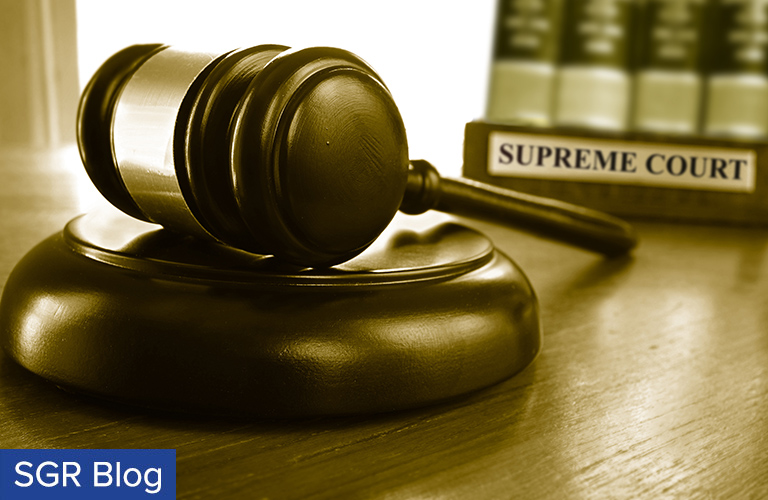
The Georgia Supreme Court is reaching the end of its April Term. This means that cases submitted to the Court during the December Term that have not yet been decided will be decided in the next few weeks. On June 18, the Georgia Supreme Court issued a number of significant decisions.
Colonial Oil Ind., Inc. v. Lynchar, Inc., Case No. S18G1788. This case involves the enforcement of agreements guaranteeing the payment of a debt. The relevant agreement identified the debtor as T&W Oil, Inc. When the debt was not paid, Colonial sued the two guarantors. The guarantors claimed that the guaranty agreement was unenforceable because T&W Oil was not a legal entity. It was a trade name used by Lynchar, Inc. The Georgia Court of Appeals, applying one of its prior decisions, ruled the guaranties were unenforceable because they had identified the principal debtor only by its trade name and not by its legal name. The Georgia Supreme Court reversed. The Court ruled that neither the Statute of Frauds nor the rule requiring the strict construction of guaranty agreements prevented the enforcement of the guaranties. Whether identifying the debtor as T&W Oil was deemed a misnomer or the use of a trade name, the guaranties adequately identified the debtor. Therefore, the guaranties were enforceable.
The Opinion is available at https://www.gasupreme.us/wp-content/uploads/2018/06/s17g1788.pdf
Bibbs v. Toyota Motor Corp., Case No. S18Q0075. In this case, the Georgia Supreme Court answered certified questions from the United States District Court for the Northern District of Georgia about the interaction between a wrongful death action and the decedent’s previous personal injury suit that had been settled. An accident had occurred in September 1992 in which an individual was injured and left in a coma. The injured person’s personal representative had filed a lawsuit against Toyota. In that personal injury suit, the jury awarded the plaintiff a substantial recovery for medical expenses, life care expenses and past and future pain and suffering. The personal injury action was settled.
Twenty years later, the injured person passed away and the husband and surviving children filed a wrongful death lawsuit against Toyota. The issue before the Court was what impact the settlement paid in the personal injury case should have on the damages available in the wrongful death case.
The Court ruled that to avoid a double recovery, the plaintiffs in the wrongful death suit could not recover damages that had been available in the personal injury case. That would include future economic and non-economic damages from the time of the incident through the remainder of the injured party’s normal life span. In the unique circumstances of this case, the Court concluded that the economic damages were fully recoverable in the personal injury case and that no economic damages remained to be recovered in the wrongful death case. As to non-economic damages, the jury would have to consider whether the injured party, living in a permanent coma, suffered any non-economic loss by virtue of having passed away.
The Opinion is available at https://www.gasupreme.us/wp-content/uploads/2018/06/s18q0075.pdf
The Campaign for Accountability v. Consumer Credit Research Foundation, Case No. S17G1676. This case addressed an issue under the Georgia Open Records Act. The Consumer Credit Research Foundation had entered into a consulting agreement with a professor at Kennesaw State University to research the effects of payday loans on the financial health of consumers. Although the professor signed a confidentiality agreement, Kennesaw State University did not. At a later date, the Campaign for Accountability made an Open Records Act request of Kennesaw State asking for correspondence and communications between the professor and the Foundation. When Kennesaw State indicated that it would disclose the requested records, the Foundation filed a lawsuit seeking to prevent disclosure.
The Foundation argued that the records were exempt from disclosure under a particular provision of the Open Records Act. The Court ruled, however, that the issue was not whether the records were exempt from disclosure but whether Kennesaw State was nevertheless allowed to disclose the records. The Court concluded that the fact that records were exempt from disclosure did not mean that they were prohibited from disclosure. If the Foundation had wanted to prevent Kennesaw State from producing exempt records, it needed a confidentiality agreement with Kennesaw State.
The Opinion is available at https://www.gasupreme.us/wp-content/uploads/2018/06/s17g1676.pdf

